Nirsevimab (Beyfortus) is a long-acting monoclonal antibody intended for neonates and infants to protect against respiratory syncytial virus (RSV) disease. Nirsevimab is preferred over palivizumab (Synagis) because of its efficacy, duration and convenience.
Alliance utilization criteria for nirsevimab follows California Children’s Services (CCS), Advisory Committee on Immunization practices (ACIP), Centers for Disease Control and Prevention (CDC) and American Academy of Pediatrics (AAP) recommendations. The Alliance will cover nirsevimab for members who meet requirements outlined in the Beyfortus policy.
| Conditions for using nirsevimab | |
|---|---|
Infants < 8 months entering their first RSV season if
|
High-risk children 8 – 19 months entering their second RSV season
|
PLEASE NOTE:
|
|
| Dosing and administration
Nirsevimab may be administered from October through the end of March. Only children who meet high-risk criteria should receive more than one dose of nirsevimab – one dose in their first RSV season and one dose in their second RSV season.
|
|
Considerations when administering palivizumab versus nirsevimab for high-risk infant
If nirsevimab is administered, palivizumab should not be administered later that season.
If palivizumab was administered initially for the season and under five doses were administered:
- The infant should receive one dose of nirsevimab.
- No further palivizumab should be administered.
- Because protection from palivizumab wanes after 30 days, nirsevimab should be administered no later than 30 days after the last palivizumab dose, when possible. There is no minimum interval between the last dose of palivizumab and the dose of nirsevimab.
- If palivizumab was administered in season one and the child is eligible for RSV prophylaxis in season two, the child should receive nirsevimab in season two, if available. If nirsevimab is not available, palivizumab should be administered as previously recommended by AAP.
Vaccine for Children program (VFC)
Nirsevimab is now available through the VFC program for enrolled providers. Providers will be reimbursed for the administration fee when using VFC vaccines for members.
Prior authorization is not required for infants under 20 months old, if the provider is only billing for VFC administration fee.
Please refer to California Department of Public Health (CDPH) letter for more details.
Nirsevimab billed as a medical claim
For providers who wish to bill the Alliance as a medical claim using a HCPCS code or “buy and bill,” please submit a prior authorization request via the Alliance Provider Portal or by fax to 831-430-5851.
If you have any questions, please call the Alliance Pharmacy Department at 831-430-5507.


